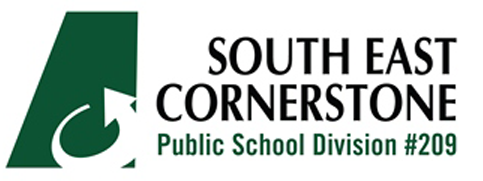The Cornerstone School Division is focused on mental health, following incidents of students harming themselves over the past year, along with four adults from school communities.
In a presentation to the board of trustees, Aaron Hiske noted the age range of the students was 12 to 18 years of age, with one committing suicide, and 15 who were hospitalized as a result of self-harm, adding, “These are only the instances we are aware of.”
Cornerstone struck a Wellness Committee as a joint effort between the school division and the Southeast Cornerstone Teachers Association.
Two schools piloted the teen mental curriculum last year, and the feedback indicated teachers needed more context in order to deliver the eight-lesson curriculum.
After doing some research, the committee settled on material provided by Dr. Stan Kutcher, a professor of psychiatry at the University of British Columbia and a renowned expert in adolescent mental health.
He provided material for two professional development days for Cornerstone teachers, with one course for K to Grade 8 teachers, and another, “Bringing Mental Health to School”, for Grades 9-12 teachers.
The course for K to Grade 8, the Mind Up curriculum, is a 15-lesson course that provides students with a foundation of mental health literacy, with strategies they can use at school or in one’s own life. These lessons teach activities around topics such as gratitude, mindfulness and perspective taking.
The lessons drive positive behaviour, improves learning and scholastic performance, and increases empathy, optimism and compassion.
The course for Gr. 9-12 guides students through interactive strategies that engage participation, communication, relationship-building and critical thinking. The lessons, which are being implemented in the English Language Arts classes, aim to increase understanding of mental health and mental disorders, and helps to decrease the stigma of mental illness.
• In other school division business, deputy director Keith Keating gave a synopsis of the staffing levels currently in place for Cornerstone School Division.
Teaching staff comprise 513.7 full-time equivalent (FTE), with 43.29 FTE response to intervention teachers, 38.95 FTE learning support teachers, 28.09 FTE unassigned time in school and 12 FTE for unassigned time outside of staffing. Keating explained these numbers, along with those of support staff, are driven by the number of students in school.
The support staff numbers include 125.58 FTE educational assistants, 21.05 FTE library technicians, 45.36 FTE administrative assistants, 123.5 FTE transportation (school bus drivers), 86.53 FTE for facilities, 13 staff for information systems, six to eight staff for finance-payroll, and five division office educational AA staff.
Two contracts are outstanding, with CUPE’s agreement expired since Aug. 31, 2018, along with SEIU’s contracts. Keating noted they are just awaiting meeting dates to negotiate with CUPE representatives, and they have met twice with SEIU with the next date set for December.
With a new contract just ratified with the Saskatchewan Teachers Federation, the division is working with the STF, SSBA and the Ministry to ensure they have a full understanding of all aspects of the contract, such as in relation to substitute teachers and professional fees for teachers.
Part of the responsibility of Keating’s position is doing evaluations of administrators, piloting a five-year assessment process for teachers, and developing a recruiting process for difficult-to-fill positions, such as to provide specialized teachers and administrators to rural schools.



